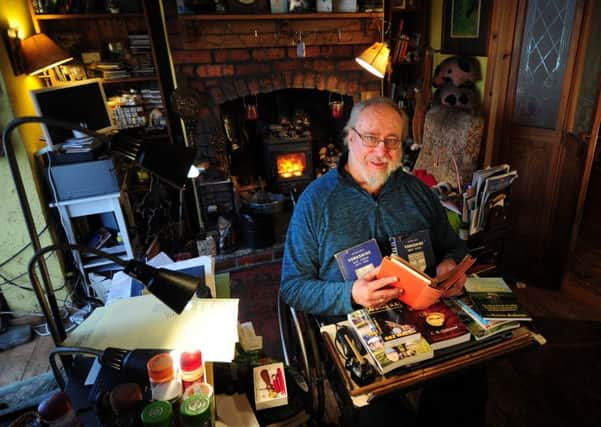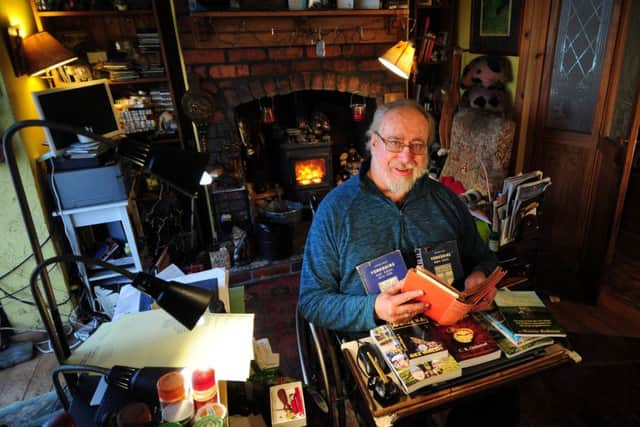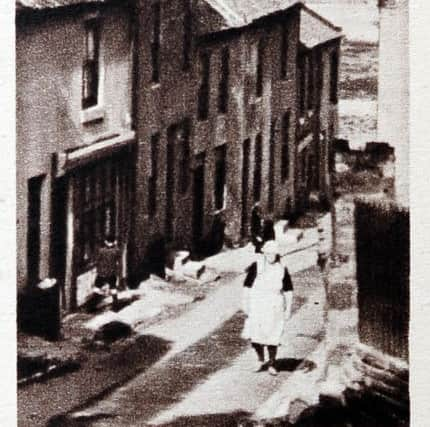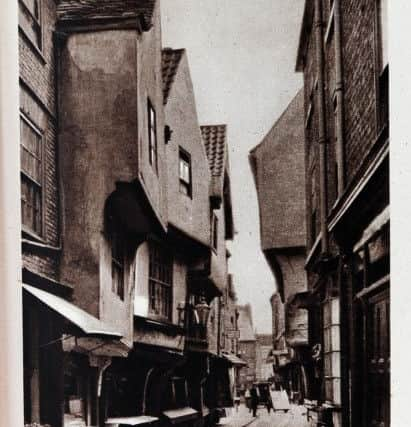First prize in the raffle of life: The splendid way we were


The name was less loaded back in 1989, when Rudd set up the King’s England Press to republish, logically enough, The King’s England, the classic but long out of print series of county-by-county guidebooks celebrating the nation’s heritage. This “New Domesday Book”, as it was billed, was devised in the Thirties by the journalist Arthur Mee, best-known for his Children’s Encyclopedia. It ran to 41 volumes, stretching to over five feet of shelf space.
“In Mee’s day, England had a king, it was the centre of the world’s greatest empire and it was the workshop of the world,” says Rudd when we meet at his home (and office) at Lockwood, near Huddersfield. “As someone once said, to be born English was to win first prize in the raffle of life.”
Advertisement
Hide AdAdvertisement
Hide AdSo far a dozen guides have been reprinted, including the West Riding, published in 1941 and one of three covering Yorkshire. It’s a fascinating read. For all Mee’s claim that “we made up our minds to put down nothing bad if we could help it”, he’s ambivalent about the county.


“Man has indeed done much to spoil it,” he writes. “It has some of the ugliest towns ever seen in this world... but they are not the true Yorkshire. The vast populations living in them can escape with ease to mountain and moor, woodland and dale.”
A new paperback reprint of the 1938 Cheshire guide is due out soon, but the project has slowed in recent years as Rudd has branched out into publishing other books – travel, local history, religion, biography, fiction and poetry, with a strong showing for Hull, where he was born.
Since he set up the King’s England Press, publishing has seen major changes. He reckons 65 per cent of sales are now direct to customers through social media or the company’s website. What’s not changed, though, is his own enthusiasm for The King’s England and its lyrical, romantic vision of the nation. “It’s a snapshot of England on the eve of war,” he says.“It’s Miss Marple and Mrs Miniver. It’s black candlestick telephones and Bakelite radios and Austin Sevens. It’s a patchwork of small fields bathed in sunlight, linked by shady lanes with deep hedgerows. It’s everything that John Major said about cricket on the green and warm beer and spinsters cycling to Evensong.”
Advertisement
Hide AdAdvertisement
Hide AdMee – or his researchers – visited 10,000 towns and villages, clocking up half a million miles. He describes what they found in prose pulsating with patriotic pomp and pageantry. “Beauty sleeps in the valley, and romance abounds on the heights,” he writes of Ilkley. At Flamborough, “all the world has heard of its noble headland... its white cliffs, for ever beaten by the waves, have been a landmark since the days of the Romans and the Vikings.”


He naturally has a field day in York: “Those who are deeply moved by the sense of something running through our ancient story like a thread of time, binding age to age, will think there is no place like York.”
The books depict a nation steeped in tradition, its county boundaries yet to be chopped and changed by local government restructuring. It’s untouched by motorways, intensive farming, concrete shopping precincts and post-colonial doubt. It’s a place of regional diversity, proud of its local character and its local characters.
Much of the writing reads rather wistfully now. The Yorkshire volumes, after all, were published at the height of the Second World War, when people were fearful that all this history could be lost.
Advertisement
Hide AdAdvertisement
Hide AdSome of the books’ success, as Rudd points out, is down to Mee’s journalistic instinct for finding the human angle. On the train home from Lockwood, for instance, I browse the West Riding guide. As we pull into Penistone, I read that Nicholas Saunderson, a blind 18th century Cambridge professor of mathematics, taught himself to read by running his fingers over gravestone inscriptions in Penistone churchyard.


As we pull out of Barnsley, I learn about James Hudson Taylor, a locally-born Victorian missionary who sailed to Shanghai with a stack of bibles and set up a still-thriving mission. He was, says Mee, in a line you might think twice about today, “almost the only white man in a continent of yellow people”.
The books aren’t updated, so they’re preserved as period pieces, as sepia as their original illustrations.“We market them as historical curiosities,” says Rudd. So there’s the chance to compare Then and Now, particularly industrial change. Pictures of cottages in “The Quaint Village of Staithes” near Whitby are captioned “Humble Homes of the Fisherfolk”. Not quite the case today.
And there’s the occasional glimpse of “what might have been” – a picture, for instance, of how Sheffield Cathedral might have looked after a grand expansion plan that was abandoned.
Advertisement
Hide AdAdvertisement
Hide AdBut there’s more to the King’s England Press than The King’s England. Its catalogue shows amazing diversity. As well as poetry written for children – including Gez Walsh’s best-selling Potty Poets series – there’s poetry written by children. Floods of Tears, Floods of Laughter is an anthology of poems by pupils from Calder Valley schools reflecting on the devastating Boxing Day 2015 floods. And there’s The Humber Sound, a series of books of poetry by Hull authors, setting out to show that the city’s poetic profile extends much further than Philip Larkin, Andrew Marvell and Douglas Dunn.


“I thought it was high time that Hull had a Humber Sound like the Mersey Sound,” says Rudd. The aim is to reflect “the experience of being in Hull, from Hull, and writing about Hull”.
One of these poets is Rudd himself – born in the Fifties, between the Mee generation and the “me” generation, in the city’s now-demolished Crowle Street area, a network of streets between Alexandra Dock and railway sidings. Its history will be celebrated in Crowle Street Kids: East Yorkshire Childhoods of the 50s and 60s, which was inspired by an oral history project and has grown and grown as people have contributed memories.
“In 1941 the area was extensively remodelled by the Luftwaffe,” says Rudd. “In the Fifties and Sixties you could uncover bits of tiled floor and sealed-off gas pipes on the bomb sites. My friend Trevor Tozer and I used to pretend to be archaeologists.
Advertisement
Hide AdAdvertisement
Hide Ad“Then Hull City Council achieved something even the Luftwaffe couldn’t and flattened the whole area. It’s a cliché but it really was a community. It was classic Northern working class culture and now it’s all gone.”
He reaches for his iPad and scrolls through black and white photographs of the area in the Sixties. Here’s a row of net-curtained terrace houses; here are children playing in the street; here’s a 1964 school photograph, with the nine-year-old Rudd sitting cross-legged on the front row.
“That’s Susan Bullivant, I think,” he says. “And that’s June Foster. I’ve not lived in Hull since 1980, but I think I still see things from a Hull perspective. Maybe slightly detached, often leaning more to the Continent or the Baltic. Also a sense of – well, cynicism isn’t the right word, but the one thing Hull people aren’t is gullible. Smart, streetwise... they’re probably the right words.”


Streetwise or not, his deep affection for England – and Arthur Mee’s England in particular – is always evident. “It’s a country I passionately believe in,” he says. “The best of England is its compassion, its respect, its concern for the underdog. My vision of what makes England great is very different from Nigel Farage’s.”
www.kingsengland.com